Walt Bismarck has returned from the dead and has come to argue that the alt-right…won. His thesis is that despite the alt-right collapsed due to political reasons in 2018, it was wildly successful at shifting the overton window and pushing radical talking points regarding race, immigration, and identity into the mainstream.
It’s easy to test whether the alt-right accomplished its goals: measure the political beliefs of the general public over time and see if there was a shift around the time the alt-right was active in 2008-2018. I’ll begin with the most important one: race. The General Social Survey has asked people whether the worse economic prospects of Blacks are due to a lower in born ability to learn in every wave ever since the 80s, so the question is easy to track across time.
They ask three other versions of this questions: whether discrimination, disparities in education, or a lack of will are to blame for the differences in economic success between Blacks and Whites. Participants can endorse multiple causes of the differences. These are the trends for the responses to each question:
Some people have argued that endorsement in these beliefs, notably hereditarianism, is affected by social desirability responding - it’s more complicated than that. If hereditarianism is socially undesirable, then people will naturally shift away from it for status-related reasons and stop talking about it in the open. Because there is less people making the case for hereditary notions of race, belief in it will naturally decline over time for reasons that aren’t directly related to status seeking.
If the alt-right really did make talking points about HBD and White identity mainstream, then you would still expect to see an uptick in hereditary belief or at the very least you would expect the change in beliefs to stop. But what actually happened is that people became more woke, not because of the alt-right, but because of the social justice movement that emerged from mass social networks.
I had a bit of fun and made an IRT model that scores people on what they think causes Black economic underperformance. Endorsement of the four causes loaded onto one general factor that was positively associated with believing that education or discrimination was responsible for the differences, and negatively with thinking that will or hereditary causes were responsible for them.
There is a great awokening effect - scores on the first principal component increased from -0.096 in 2010 to 0.42 in 2021 (SD set to 1).
There are also cohort and age relationships:
I tested to see if the age effect remained after controlling for cohort, and it actually flipped in the other direction.
This cannot be explained by earlier surveys having younger people.
After controlling the IRT scores for cohort and age, the great awokening effect remained.
I also tested whether this trend held up within people who were non-Hispanic Whites. The effect attenuated in magnitude, though I think that some of this is due to the restriction of the range in the year variable.
II.
Views on the holocaust have largely remained unchanged. There was a recent survey that went viral that said that ~20% of 18-29 year olds questioned the holocaust, but this is due to the use of opt-in panels.

Views on immigration have gotten more progressive over time.

III.
The normie conservative pundits started to adopt some fringe talking points, Trump got elected, and right wing culture shifted quite a bit in the last decade. But this is the inside view. The outside view tells us that these pundits were essentially bullied into shifting right on a few issues by the radicals, but that they still largely stuck to the mainstream, Trump can’t get much done because of the cathedral, and that the online radical right is still a small and incredibly fringe thing.
While it’s clear that the alt-right did lose, the why is a bit more complicated - my current hypothesis is that part of it is due to censorship. A lot of the figures that started to pick up steam on the alt-right (e.g. Jared Taylor, Molyneux) got banned, and because of that they lost their reach on the public. The political sphere is clearly a market that is vulnerable to saturation, though I doubt these bans had no effect on the size of the alt-right.
Besides that, the ideas of the alt-right are also too extreme relative to the mainstream, and because of that they are not palatable to the masses. This isn’t the early 20th century where politicians can take over the field by the force of their ideas and charisma alone. In the modern world, the populace is heavily propagandized and discourse is extremely controlled, so it’s much harder for radical movements to take control of politics.
Appendix
Nonlinear vs linear fit of IRT scores for racial attitudes for year, age, and cohort:
#This code could help set up people for the analysis
gs <- data(gss_all)
gss_all$hered <- NA
gss_all$hered[gss_all$racdif2==1] <- 1
gss_all$hered[gss_all$racdif2==2] <- 0
gss_all$will[gss_all$racdif4==1] <- 1
gss_all$will[gss_all$racdif4==2] <- 0
gss_all$education[gss_all$racdif3==1] <- 1
gss_all$education[gss_all$racdif3==2] <- 0
gss_all$discrimination[gss_all$racdif1==1] <- 1
gss_all$discrimination[gss_all$racdif1==2] <- 0


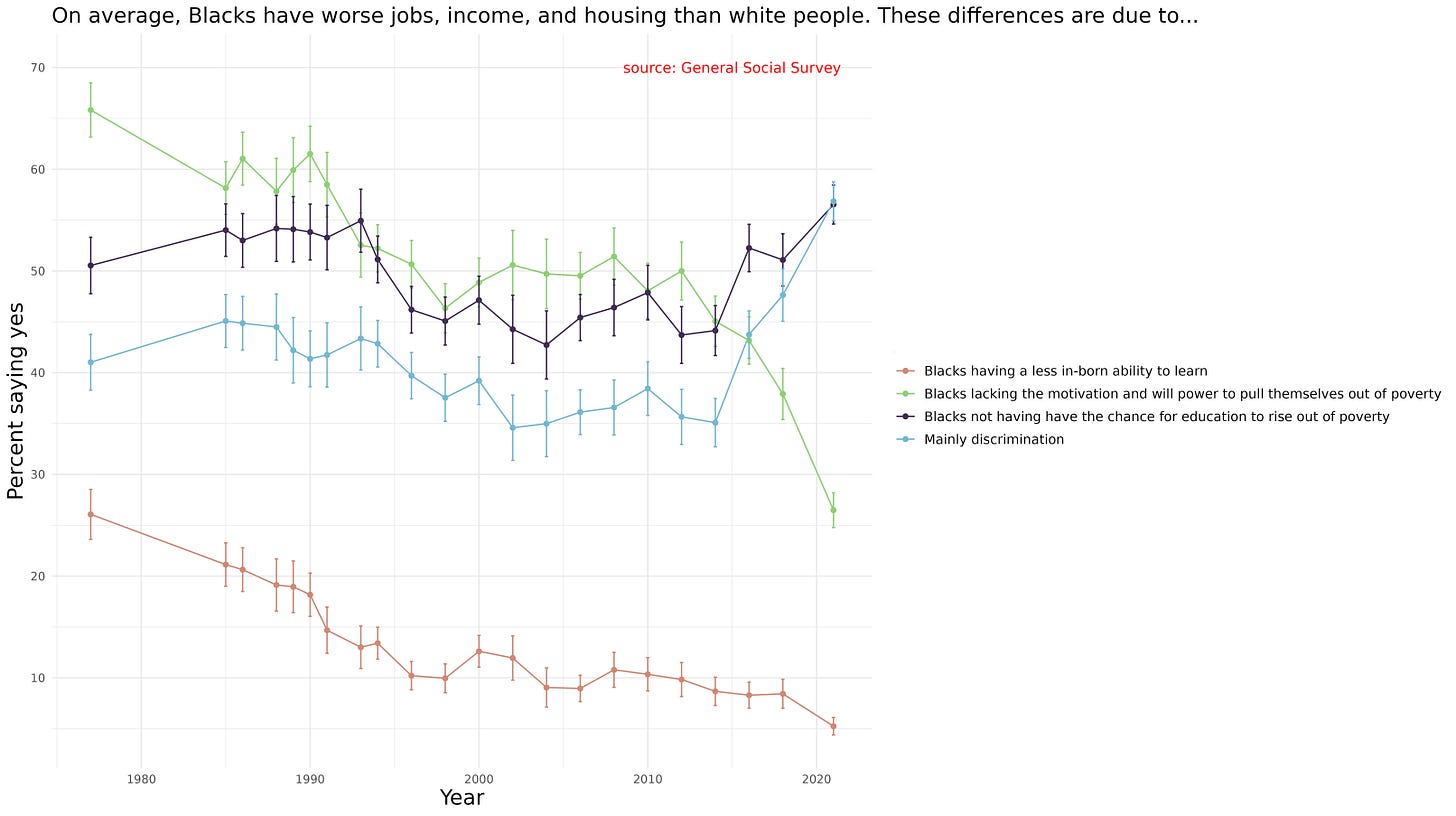

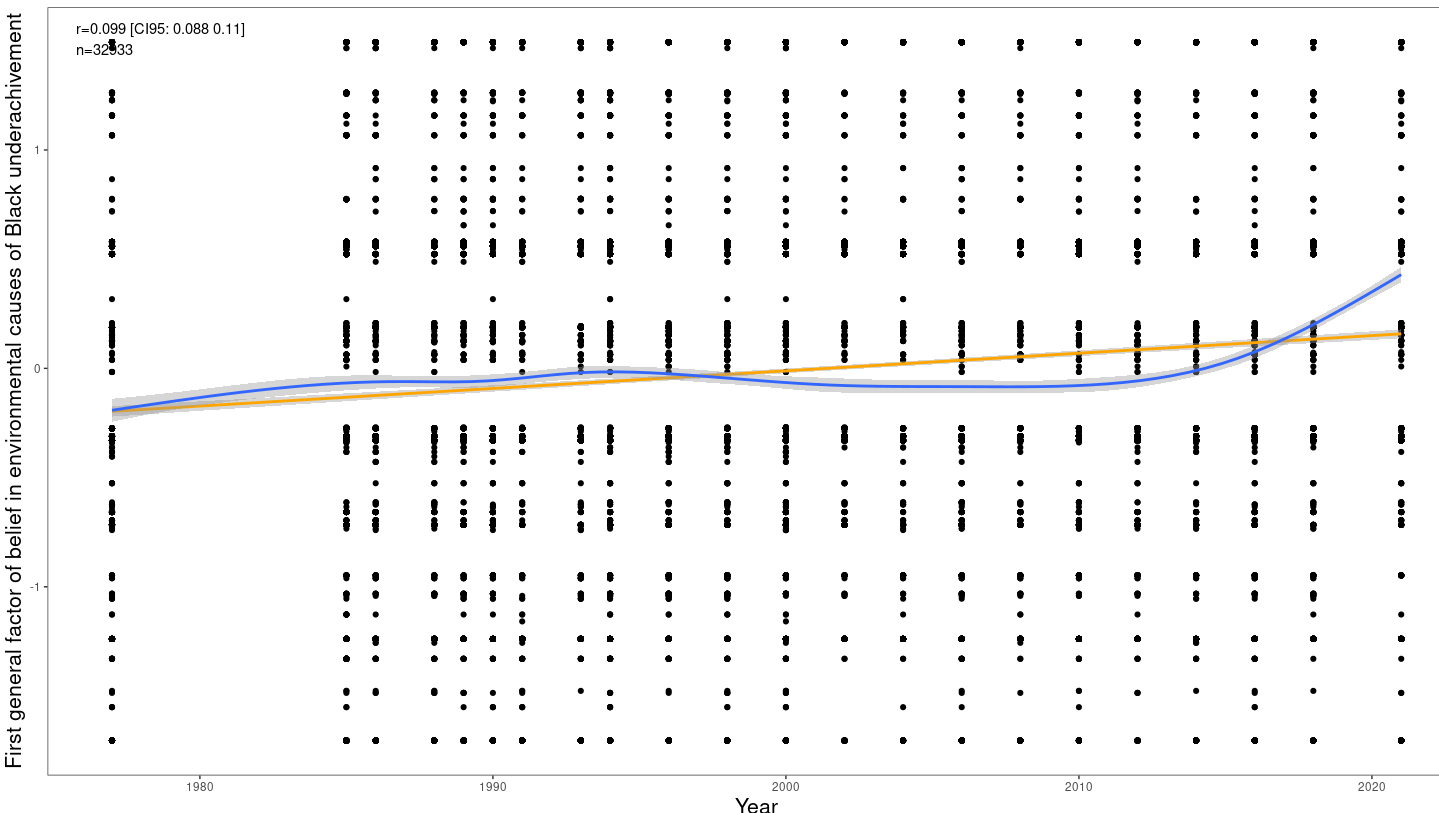



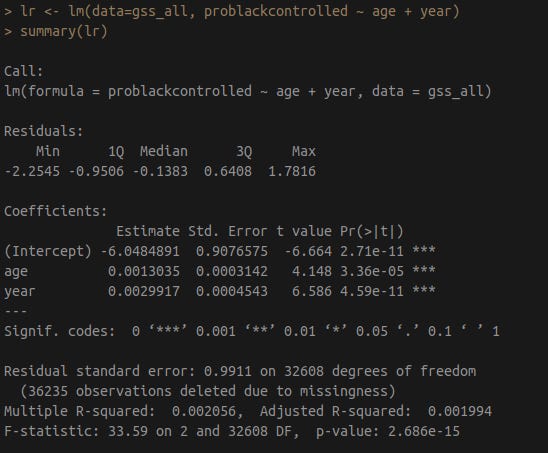
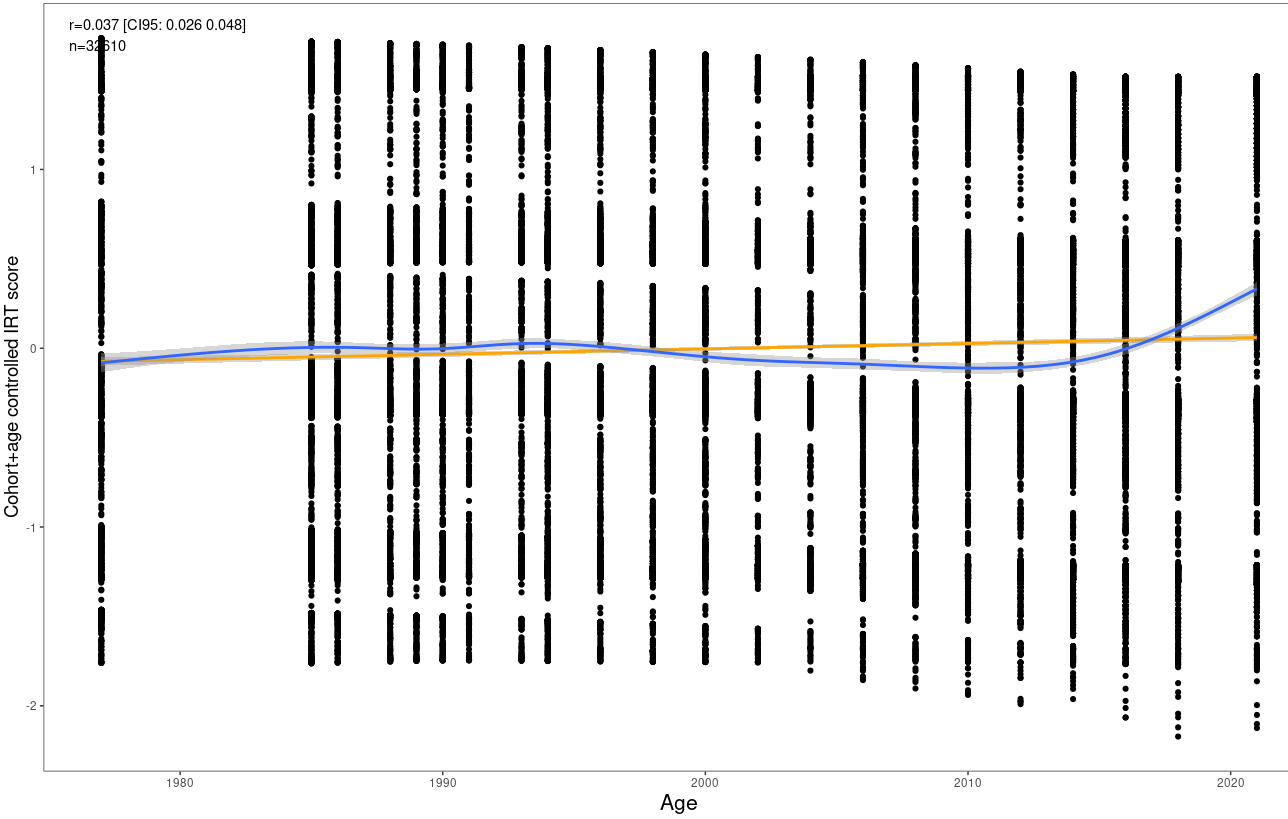


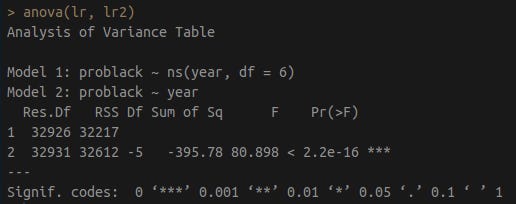

Yeah, I was sort of bewildered by that article. Like... This guy thinks that, despite all of the libtardification that has happened to our institutions in the past 5 years, the Alt-Right won because it got a few conservative media personalities to vaguely bring up RR and identity issues? Nigga please! We don't have time for these victories to happen at a snail's pace, especially since there's no telling if there will ever be anything like another Alt-Right. There probably won't be. As you said, censorship pretty much choked the Alt-Right out after Charlottesville (even to some extent beforehand). Other factors exist too. The Internet "Old Guard" largely phased out during 2017-present and was replaced with people who had very little if any presence online before 2014. This new guard was much less full of nerds and heterodox opinions and was suited to the explosion of "normal people" using the internet to communicate with people they didn't know in real life. Perhaps the biggest factor for why some people now think the Alt-Right won, is that algorithms have gotten better. They are seeing more of what they like to see, and think other people are too. But in reality, other people are seeing even less of the more heterodox content than they used to.
The idea that the alt-right won is complete nonsense.